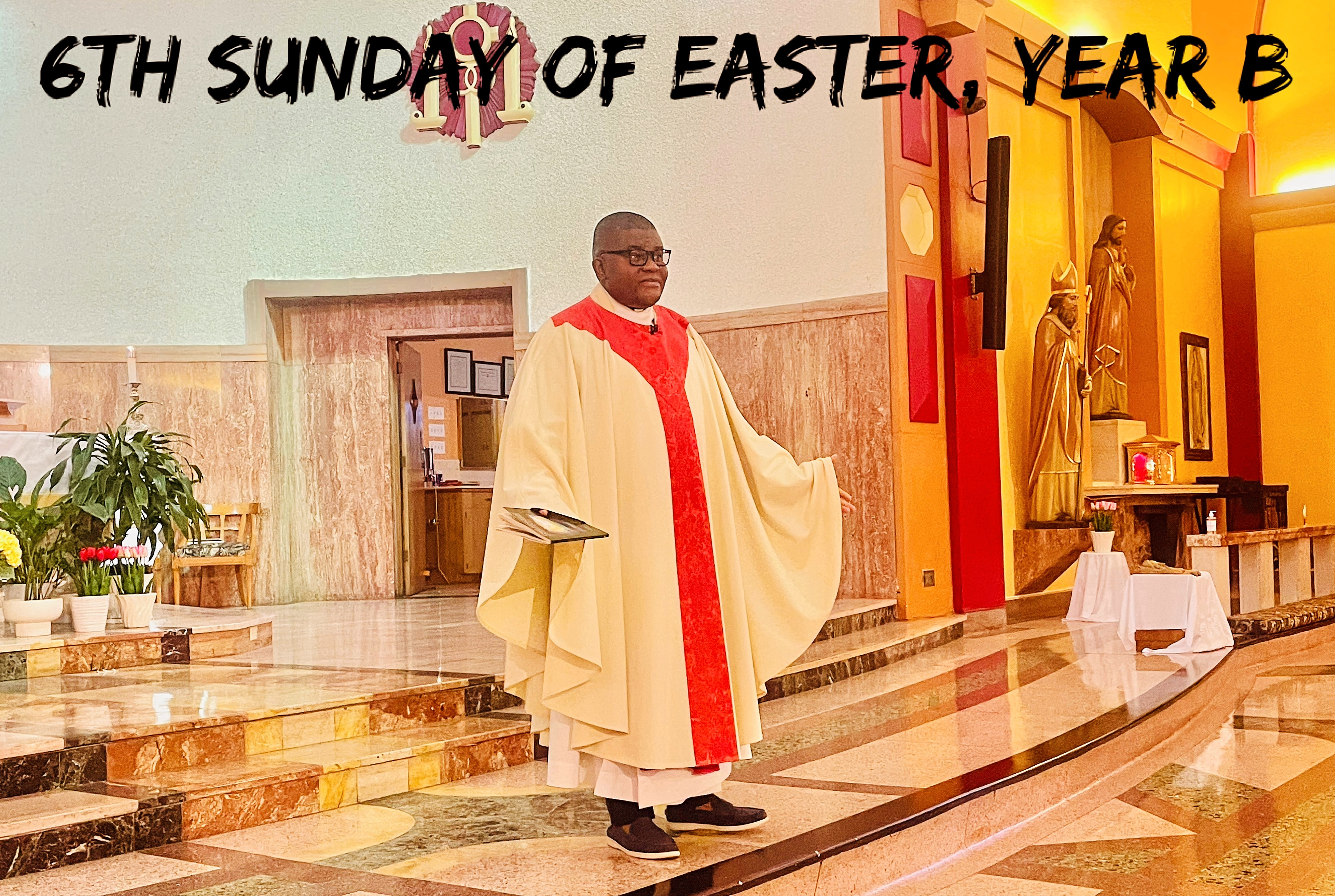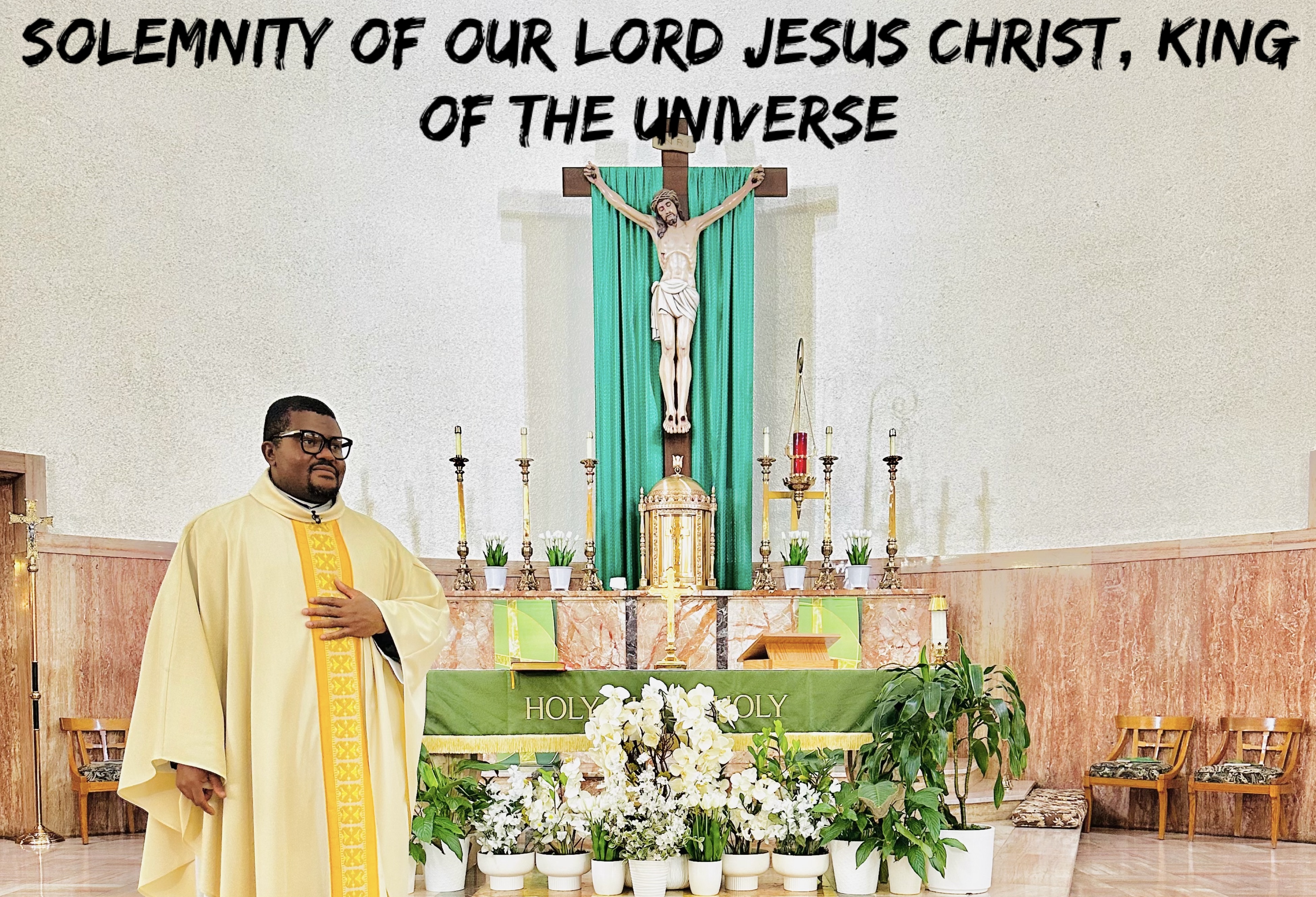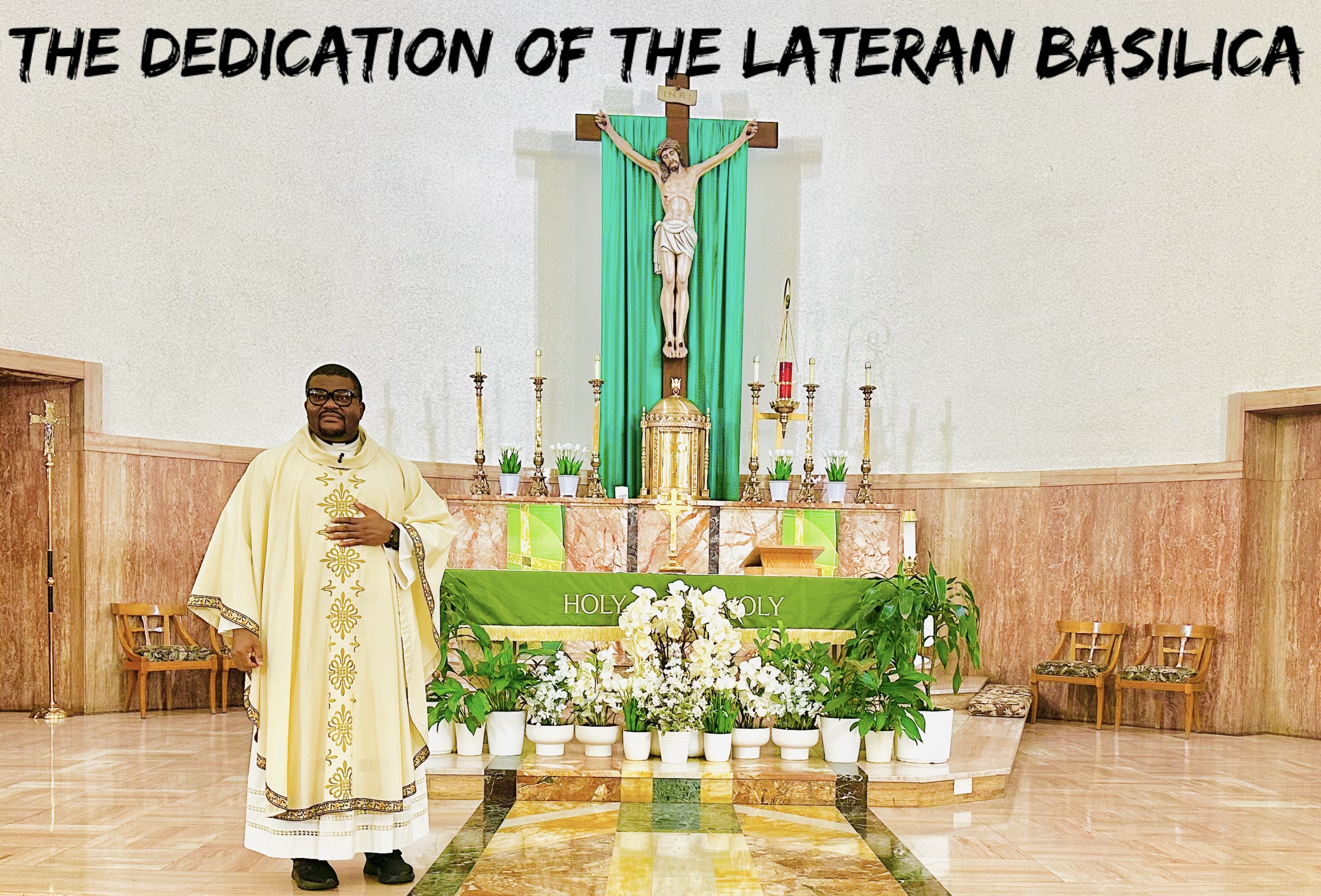6th Sunday of Easter, Year B
In today’s second reading from the first Letter of Saint John, chapter 4, verse 7 to 10, Saint John says, “Beloved, let us love one another, because love is of God; everyone who loves is begotten by God and knows God. Whoever is without love does not know God, for God is love.”
Then in our gospel reading today from the holy Gospel according to John, chapter 15, verse 9-17, Jesus says, “As the Father loves me, so I also love you. Remain in my love. If you keep my commandments, you will remain in my love, just as I have kept my Father’s commandments and remain in his love. I have told you this so that my joy may be in you and your joy might be complete. This is my commandment: love one another as I love you.”
These two readings emphasize and talk about God’s love for us and how we are to reciprocate our love for God in our love for others. So how can we love God better? How can we reciprocate God’s love for us in our love for our neighbors? Before we answer these questions, let us first find out what love is. So what is love? According to the Catechism of the Catholic Church #1765 - Love is the most fundamental passion aroused by the attraction of the good. Love causes a desire for the absent good and the hope of obtaining it; a movement that finds completion in the pleasure and joy of the good possessed. #1766 To love is to will the good of another. #2658 Love is the source of prayer; whoever draws from it reaches the summit of prayer. In Cardinal Levada’s glossary, Love is defined as, “The theological virtue by which we love God above all things for his own sake, and our neighbor as ourselves for the love of God.” Saint Paul tells us in his first Letter to the Corinthians, chapter 13, verse 13), that love is the greatest of the theological virtues saying: “So faith, hope, love remain, these three; but the greatest of these is love.”
Our Sunday Visitor’s Catholic Encyclopedia defines and explains “Love” as: ‘Any strong affection, closeness, or devotion to things or persons. The Greeks distinguished four types of love: storge, philia, eros, and agape. Storge, familial love, is a word for the bond that exists between one who loves and persons, animals, and the things that surround him. It is compatible with quite a bit of taken-for-grantedness or even of hatred at times. Philia pertains to friends, freely chosen because of mutual compatibility and common values. Eros is passion, not only of a sexual nature, but also of an aesthetic or spiritual nature, for what is conceived of as supremely beautiful and desirable. Agapic love is manifested when one person has much to give to another more needy. It is generous self-donation without concern for reward.’
From all these definitions and explanations of love, we can infer that love is an authentic desire for the ultimate good and happiness of the beloved. This was why Jesus told his disciples in the gospel reading that, “As the Father loves me, so I also love you. Remain in my love. If you keep my commandments, you will remain in my love, just as I have kept my Father’s commandments and remain in his love. No one has greater love than this, to lay down one’s life for one’s friends. You are my friends if you do what I command you. I no longer call you slaves, because a slave does not know what his master is doing. I have called you friends, because I have told you everything I have heard from my Father.” Hence, authentic love entails self-giving and self-communication. Self-giving involves honesty, sharing of oneself, transparency, loyalty and commitment. Self-communication involves mutual respect, cherishing and valuing the beloved and affirming the beloved. Are we honest to God, transparent with Him, loyal and committed to Him? Do we respect God, cherish Him, and affirm His gifts, blessings, mercies and graces upon us?
God loves us and is concerned about our well being, that is why He wants the best for us as we can see in our salvation story. God’s love for us as exemplified by Jesus Christ is eternal, and because He never stops loving us, we are reminded by these two readings of the need to love God better in our love for one another. So how can we reciprocate God’s love in our love for our neighbors today? We can do so by: -Praying for our neighbor -Practicing the Corporal works of mercy - (1) To feed the hungry; (2) To give drink to the thirsty; (3) To clothe the naked; (4) Shelter the homeless; (5) To visit the sick; (6) To ransom the captive; (7) To bury the dead. -Practicing the Spiritual works of mercy - (1) To instruct the ignorant; (2) To counsel the doubtful; (3) To admonish sinners; (4) To bear wrongs patiently; (5) To forgive offenses willingly; (6) To comfort the afflicted; (7) To pray for the living and the dead.
So my brothers and sisters in Christ, since God is love and love is of God, let us love one another, because everyone who loves is begotten by God and knows God, but whoever is without love does not know God.





